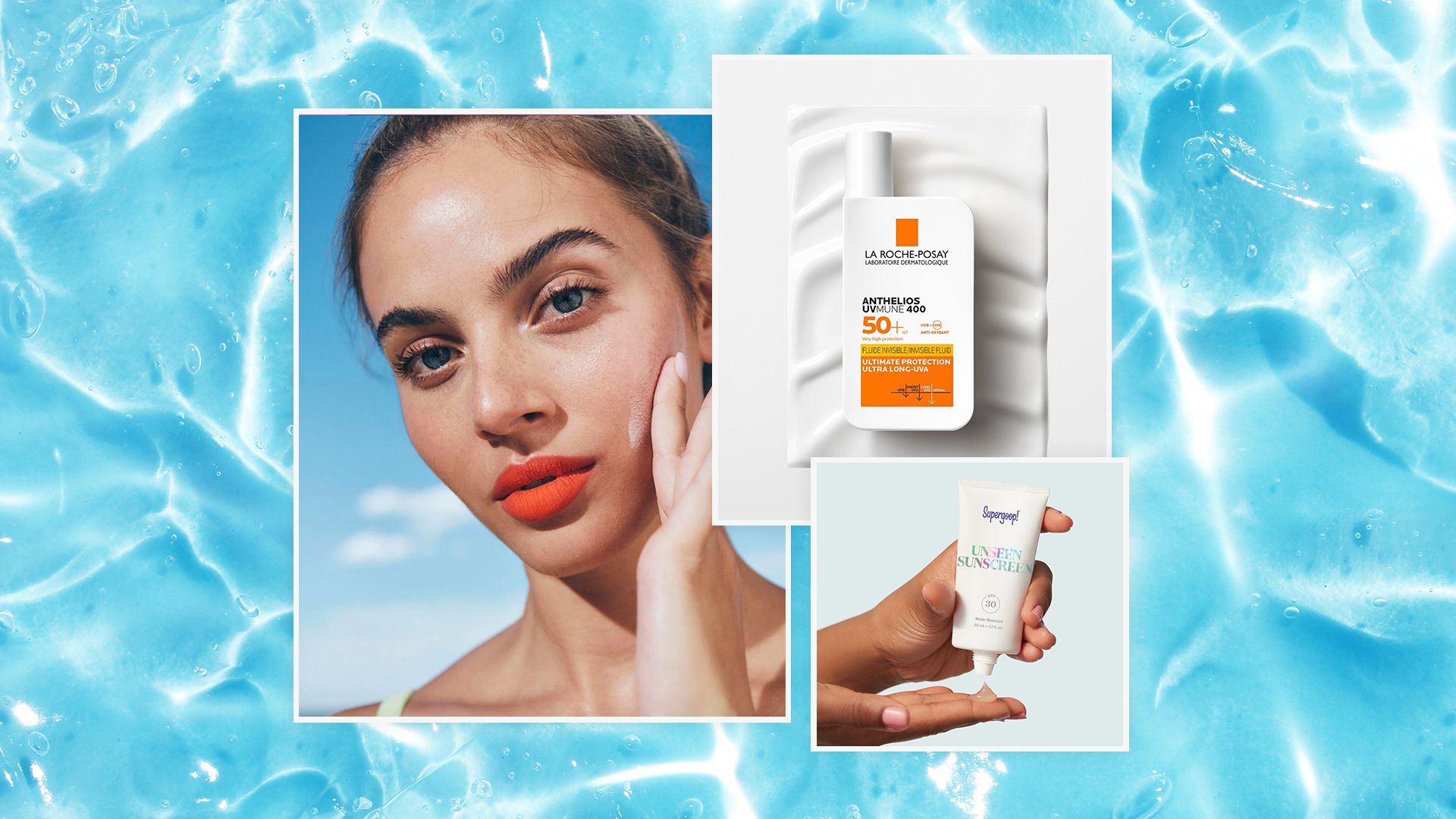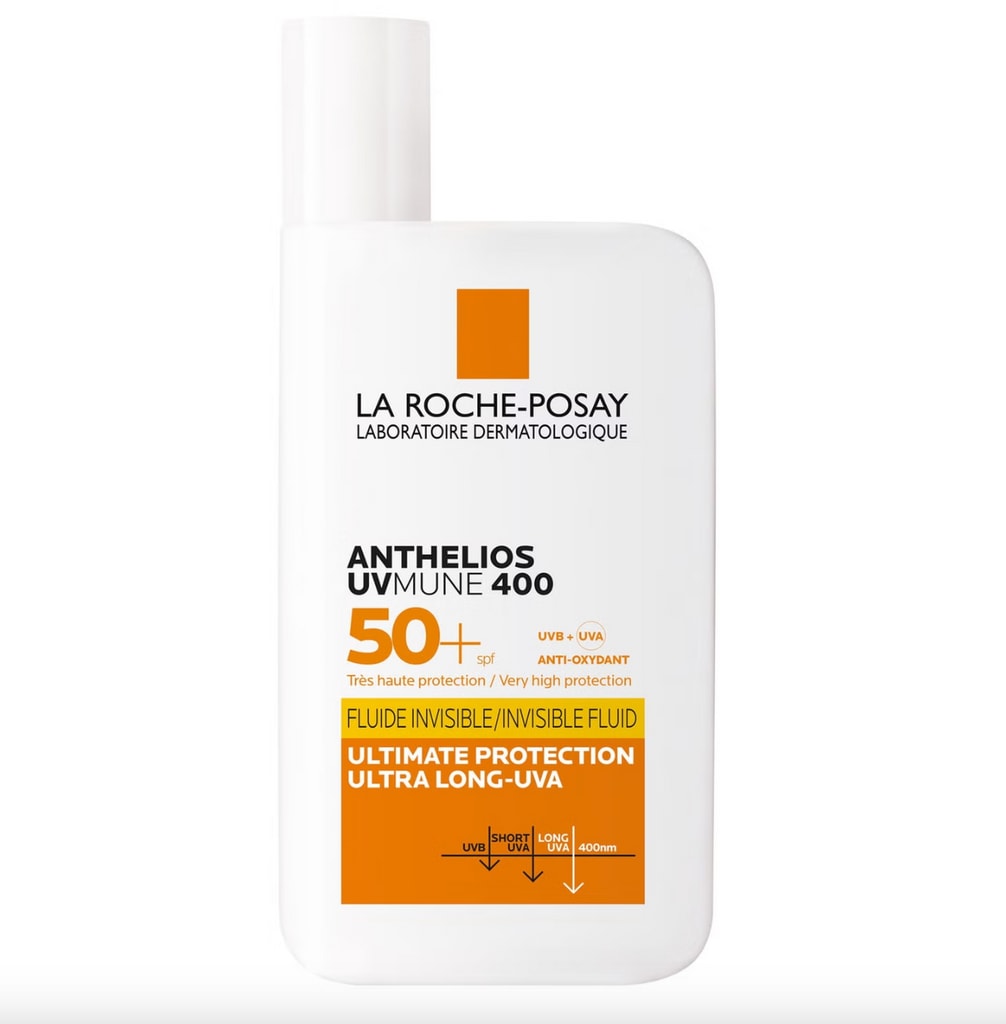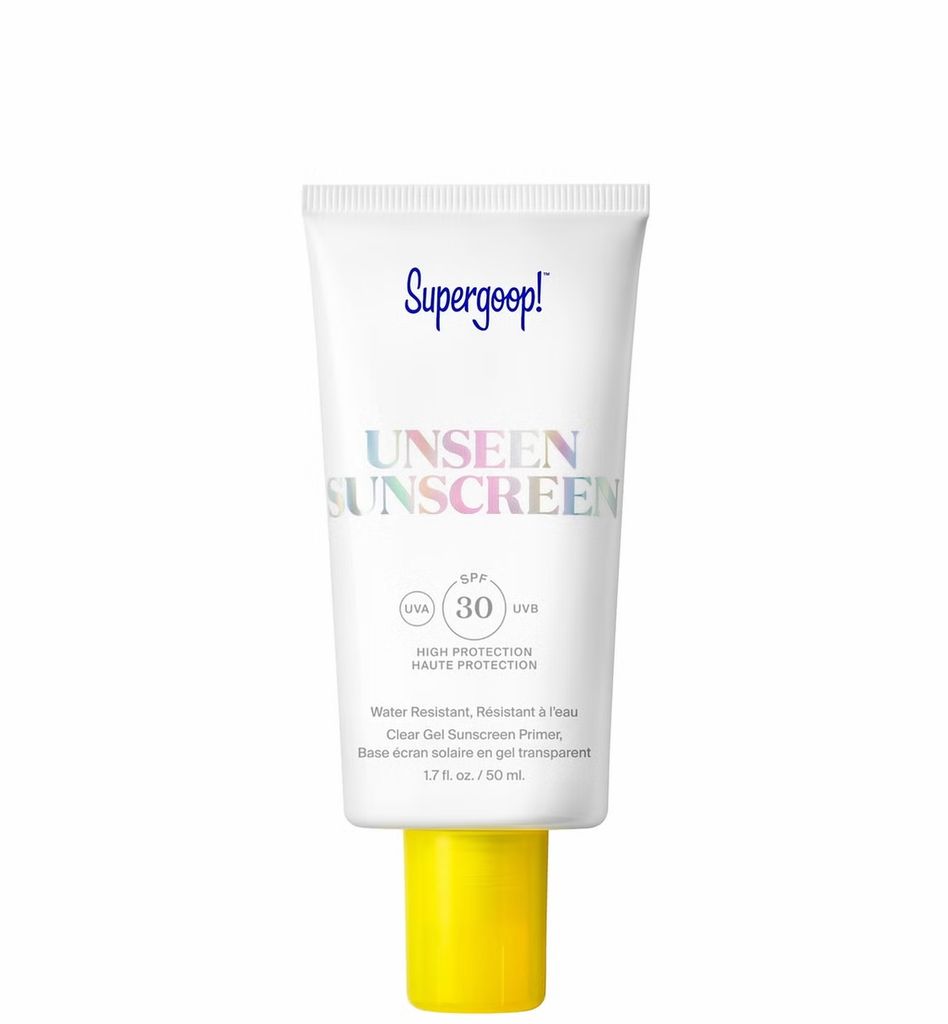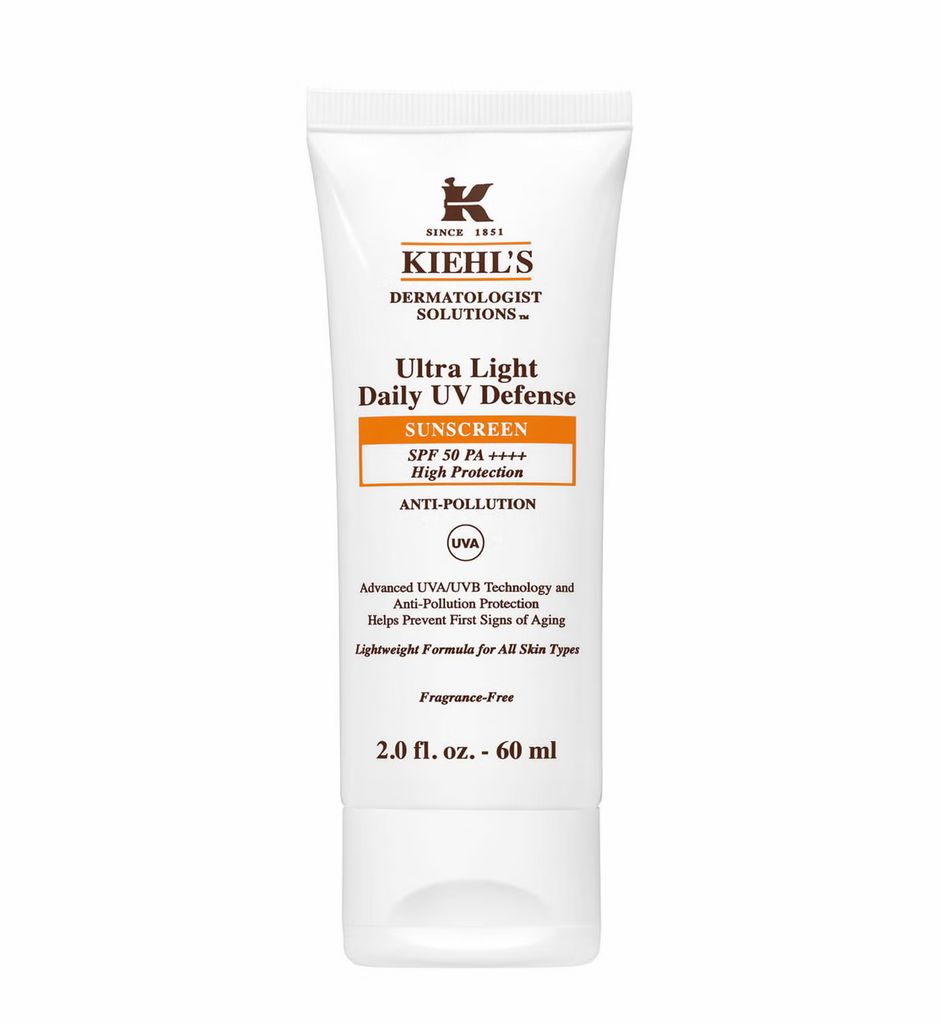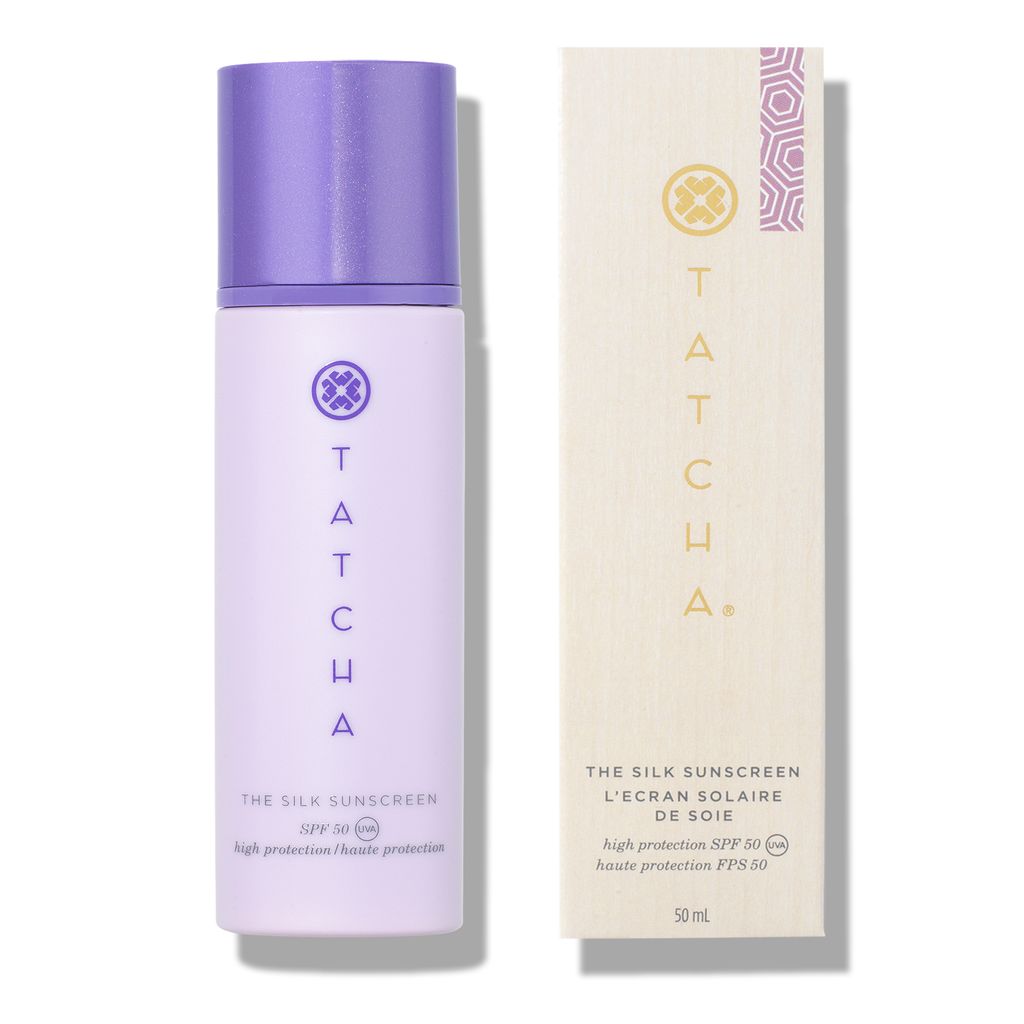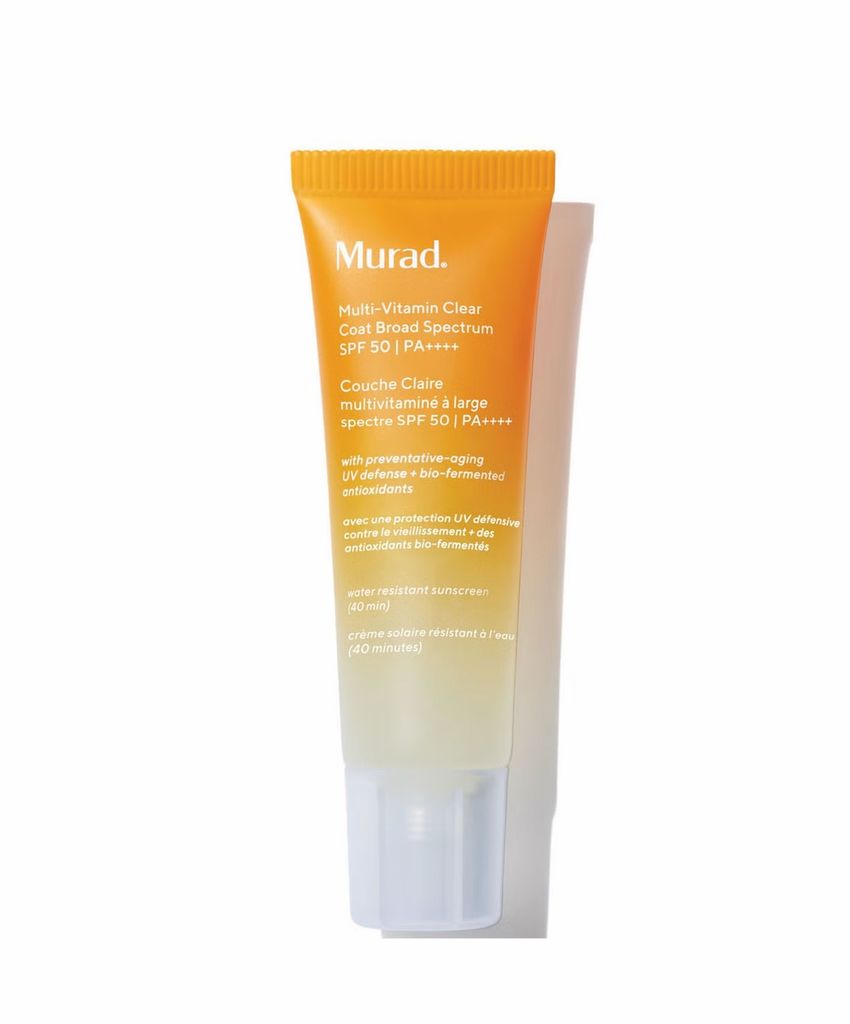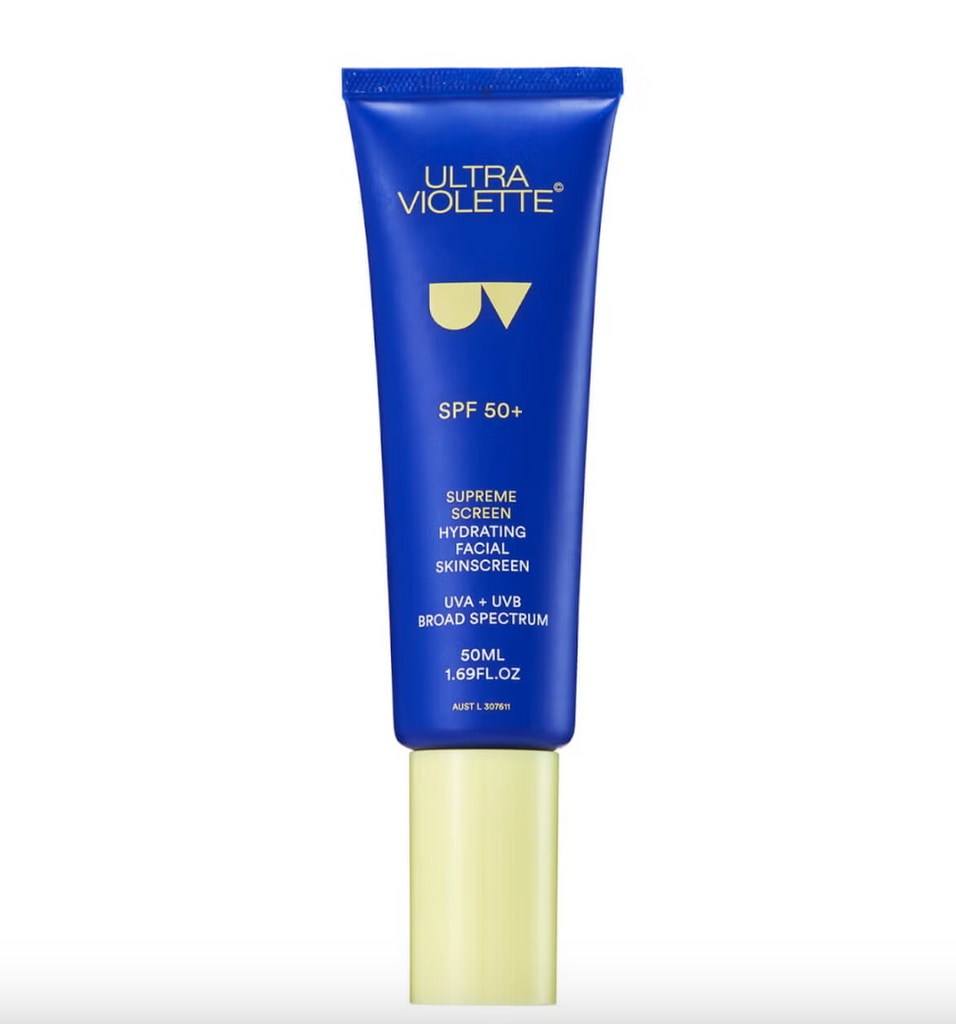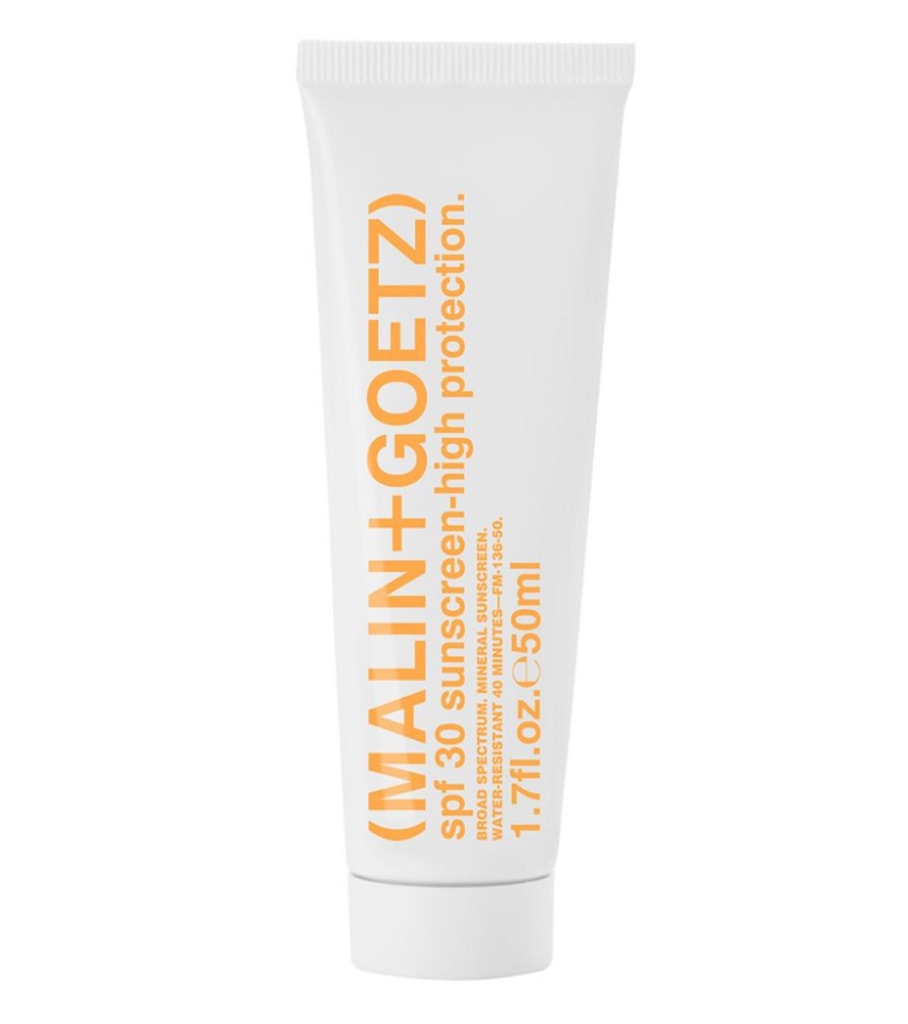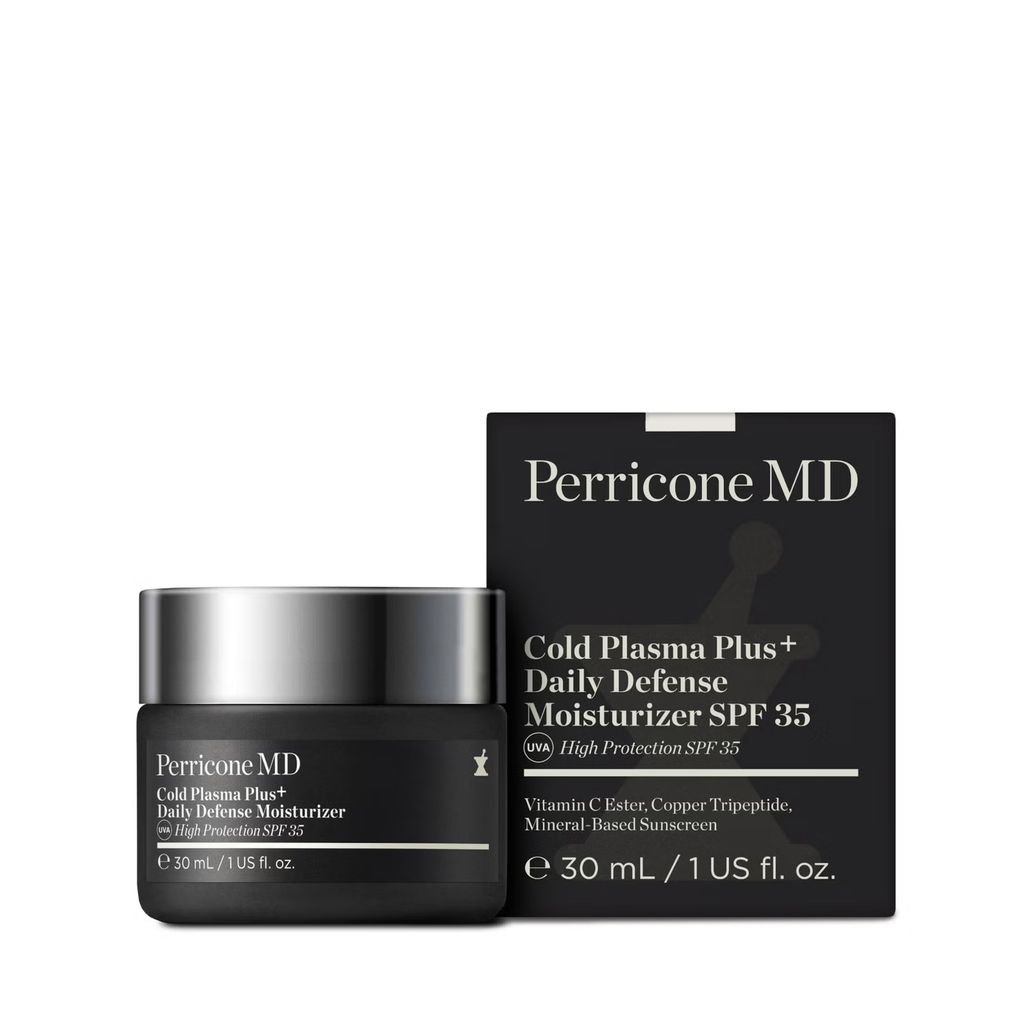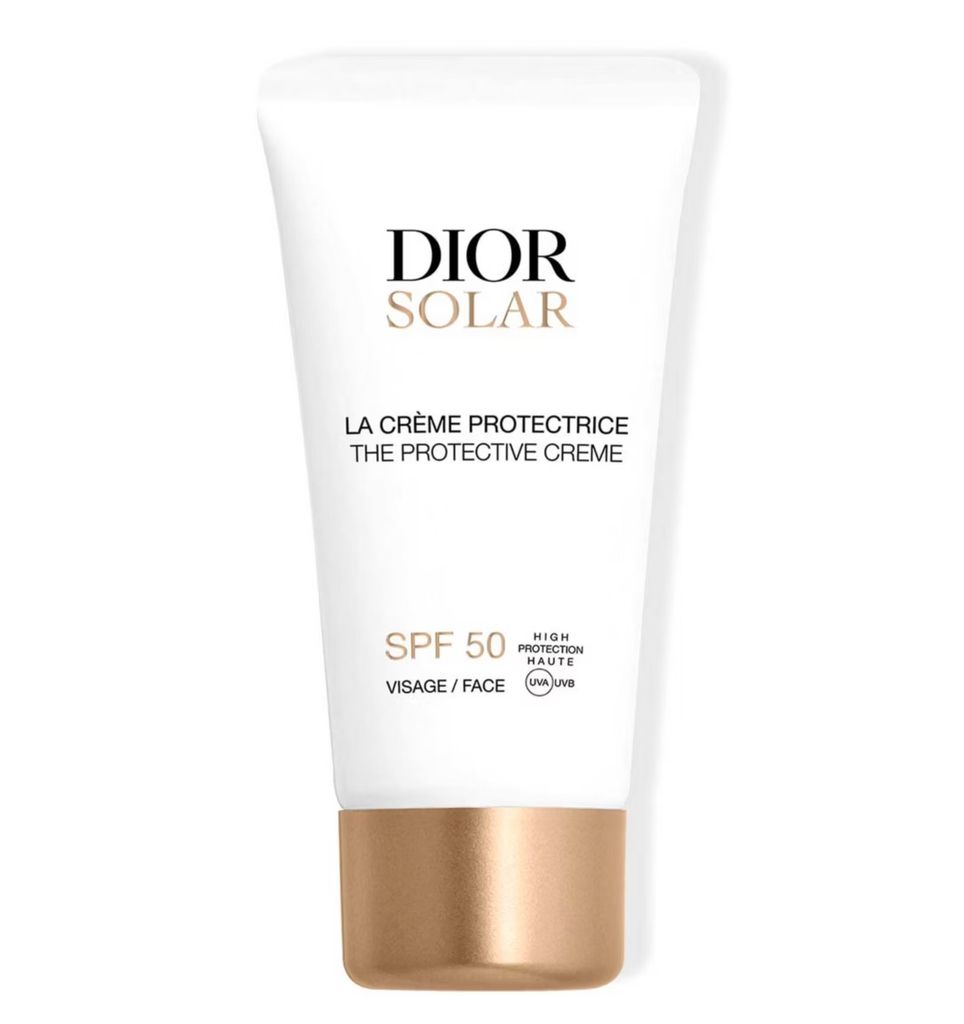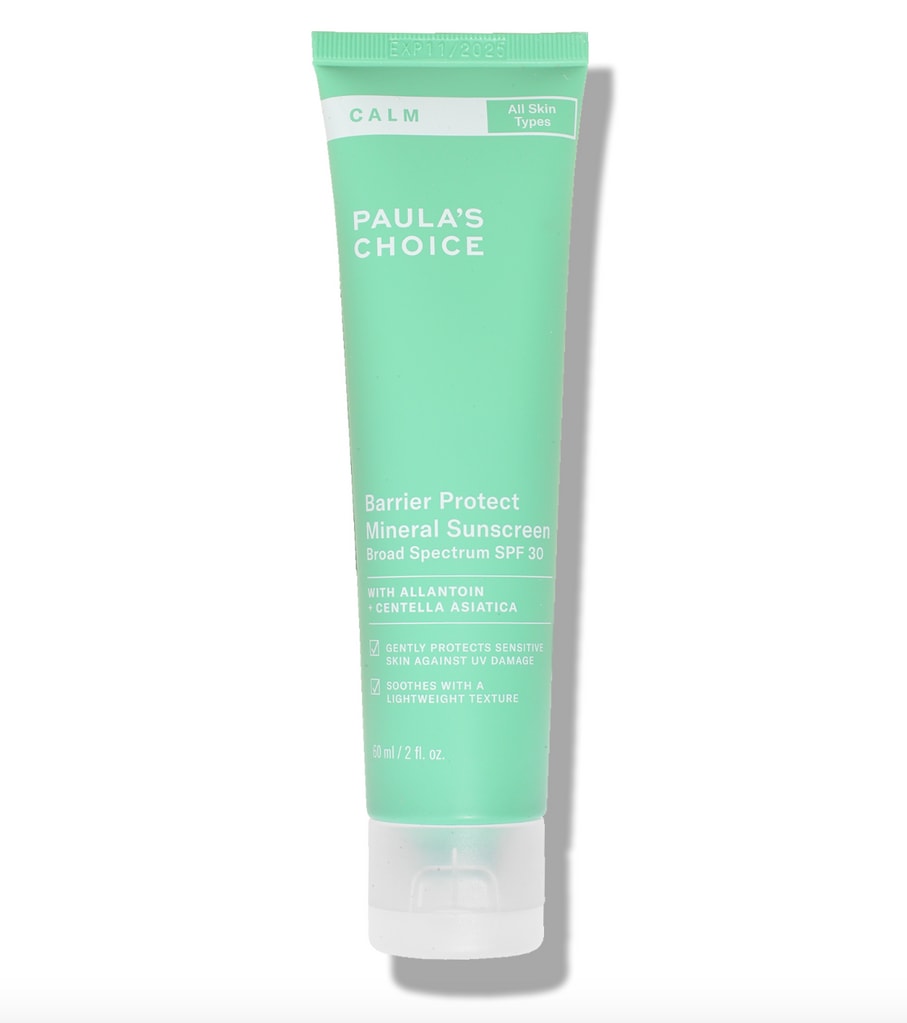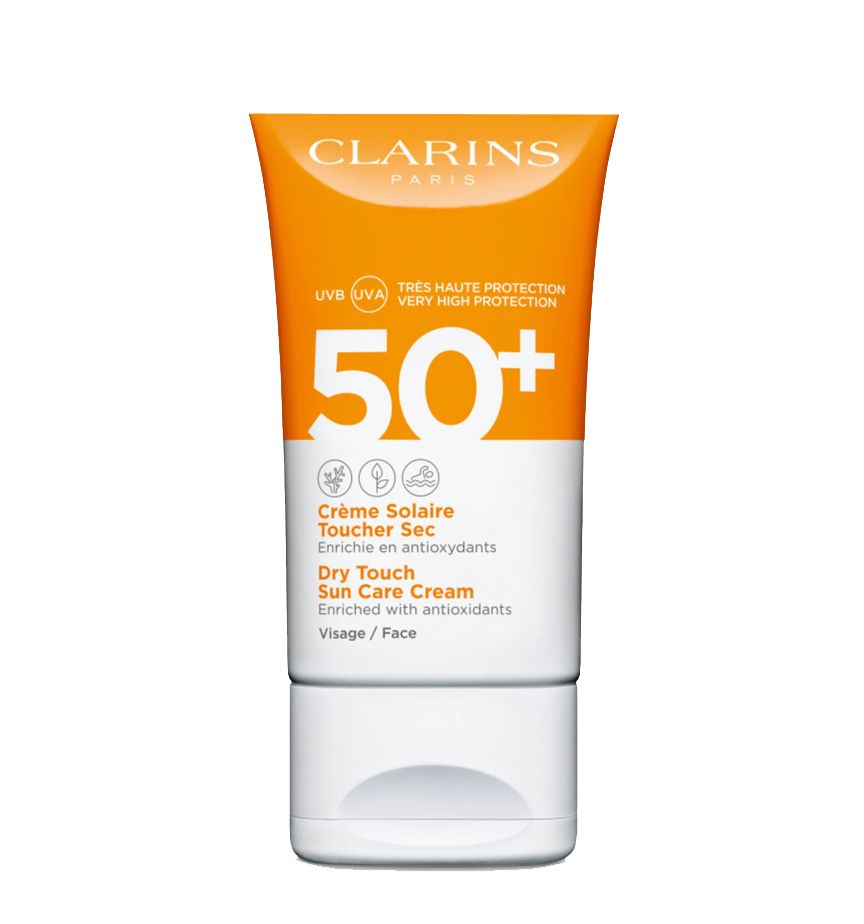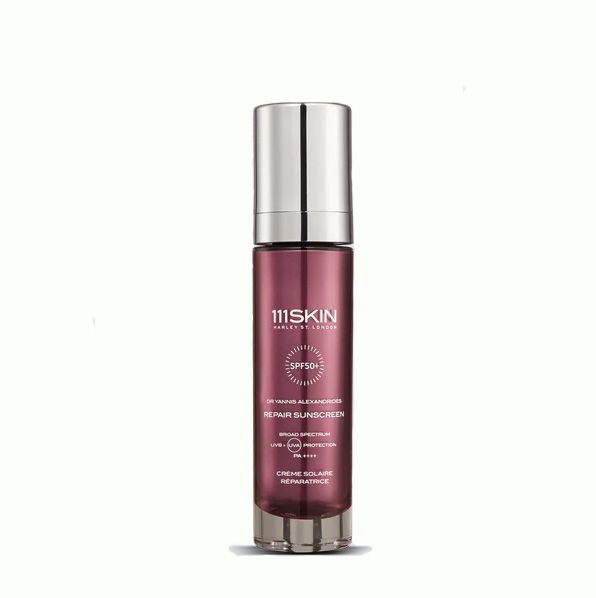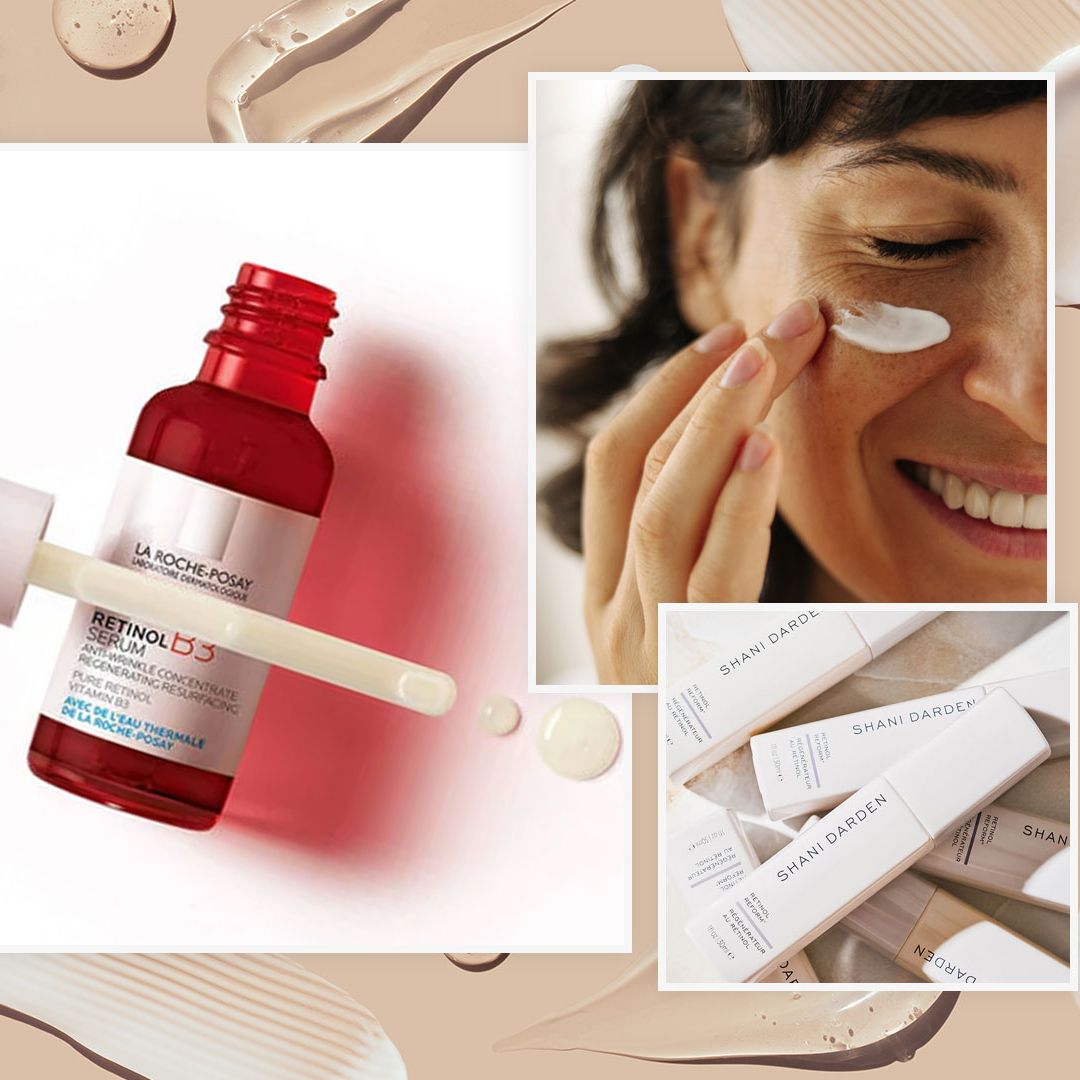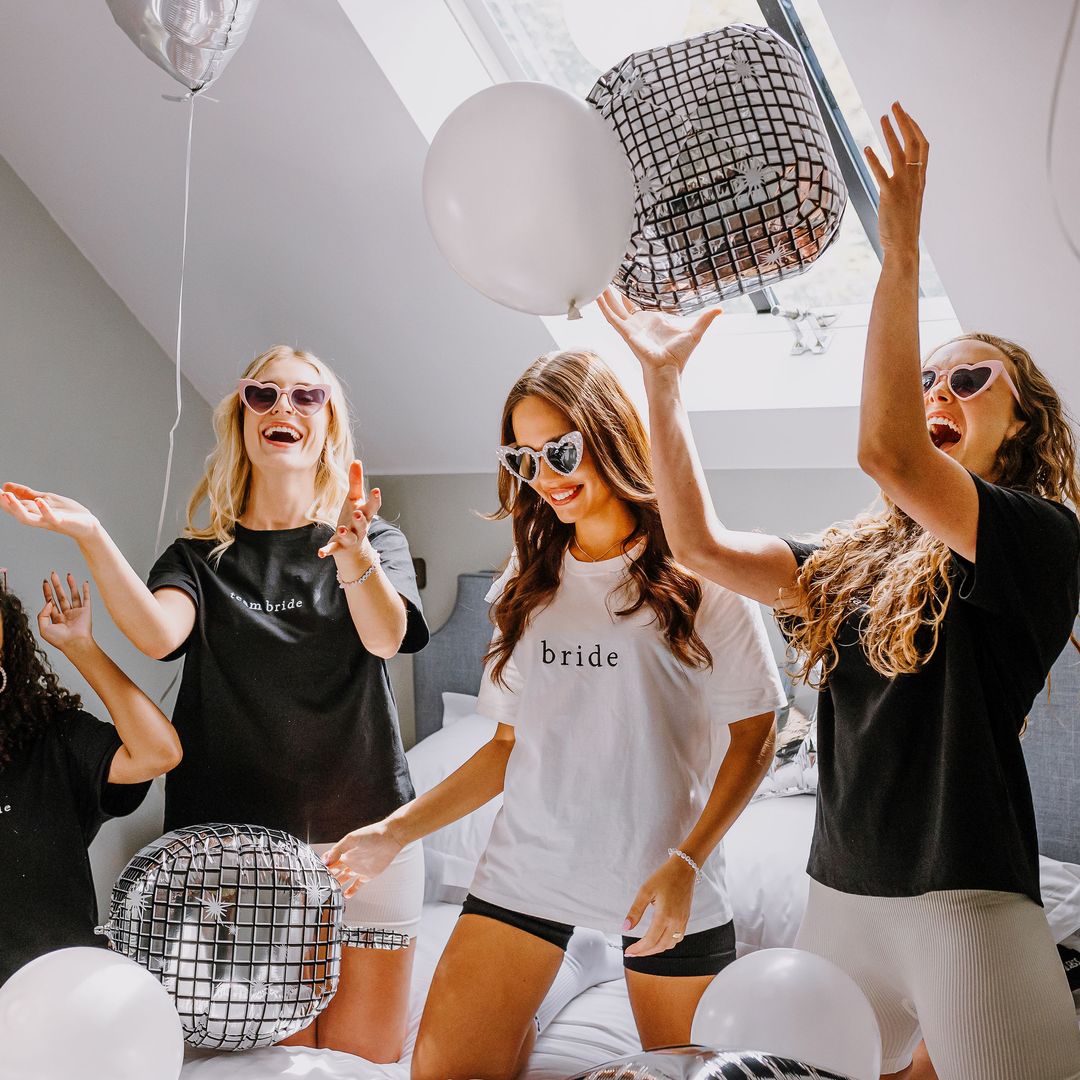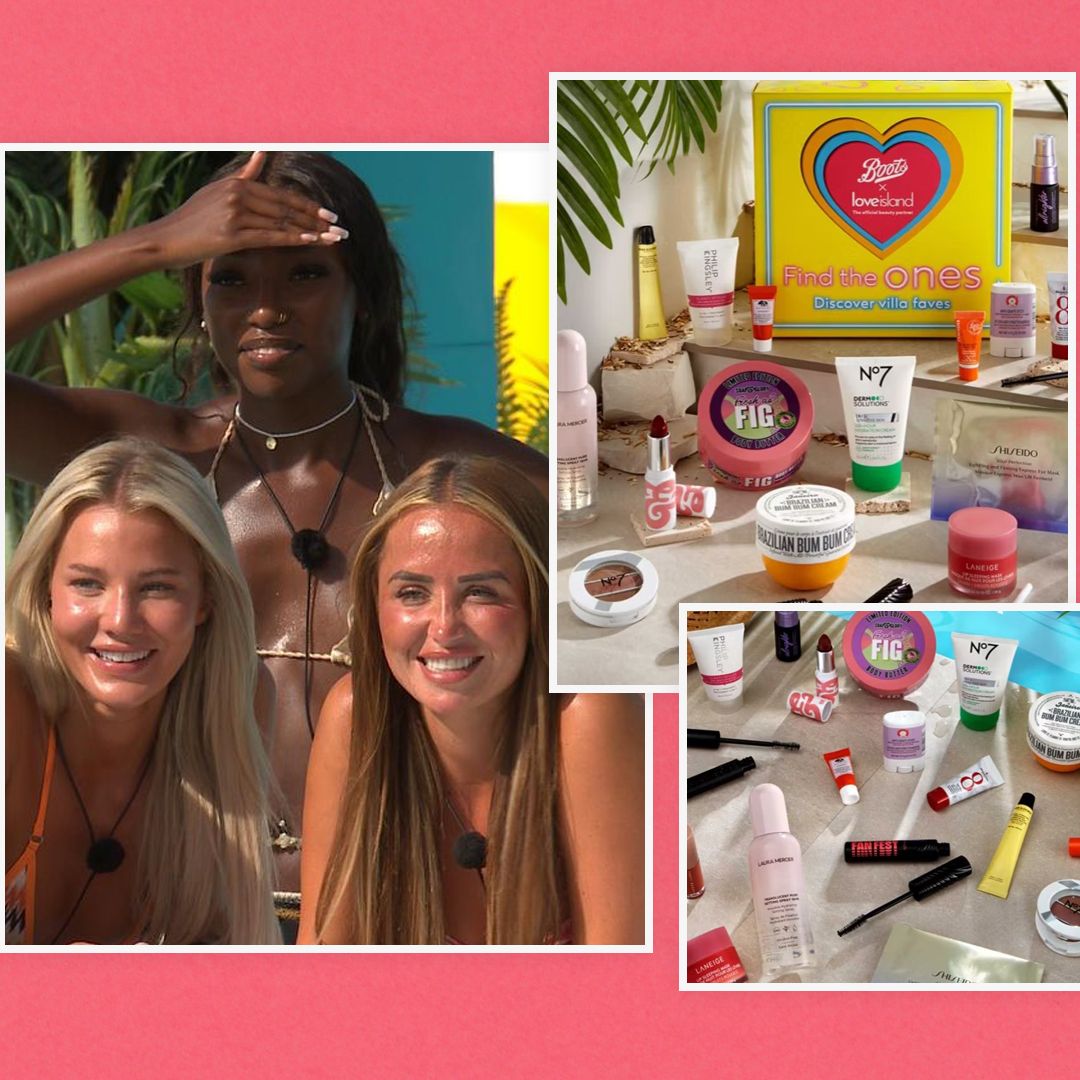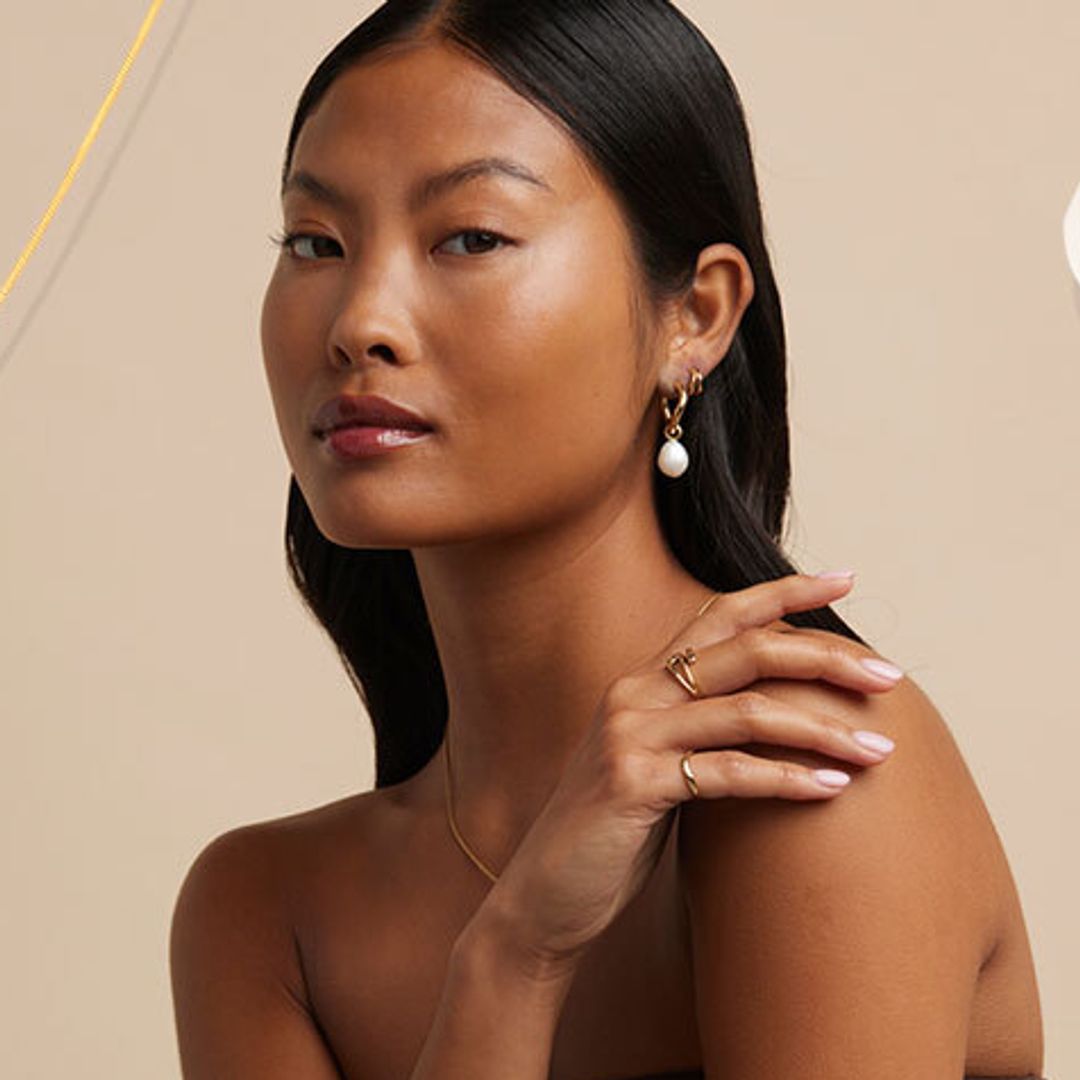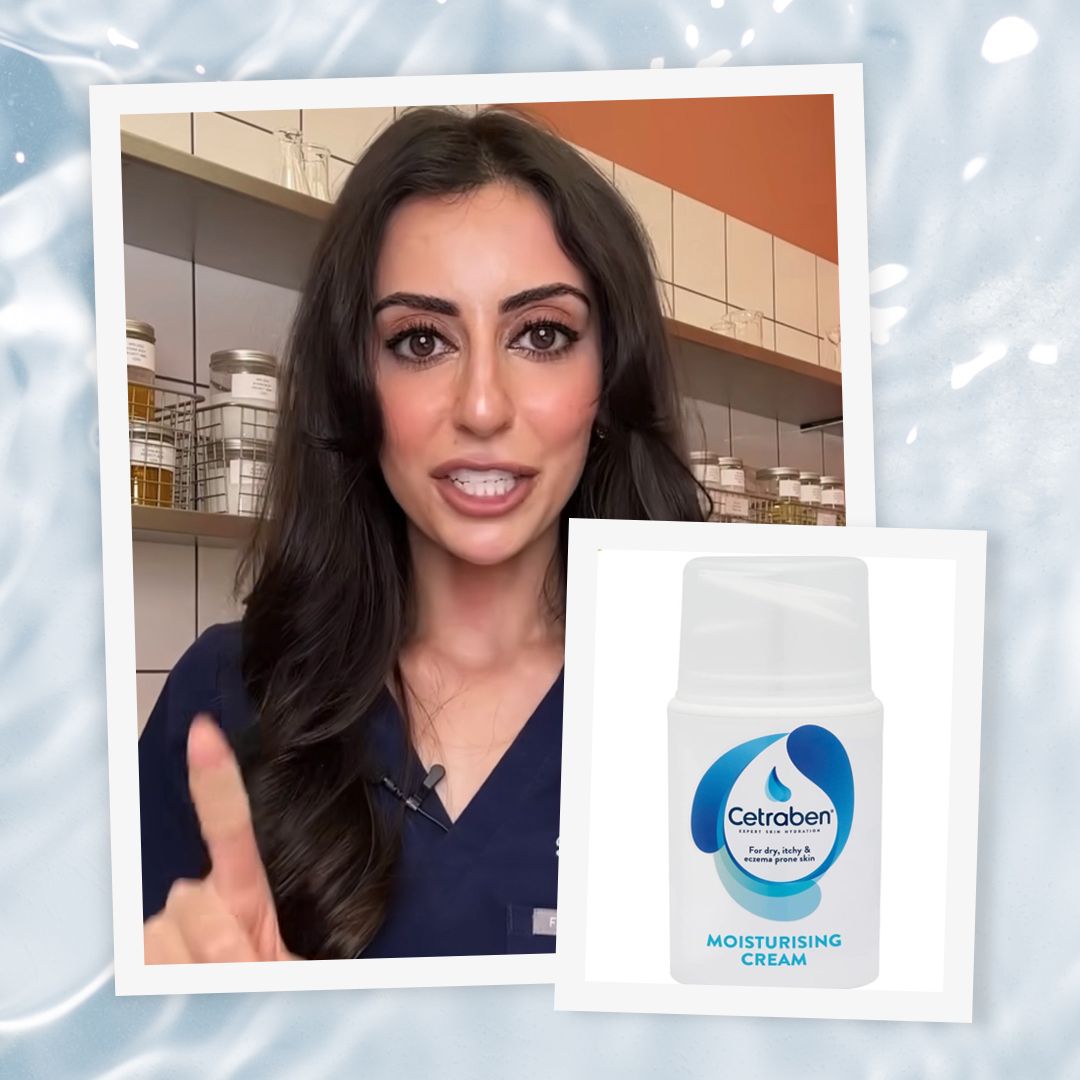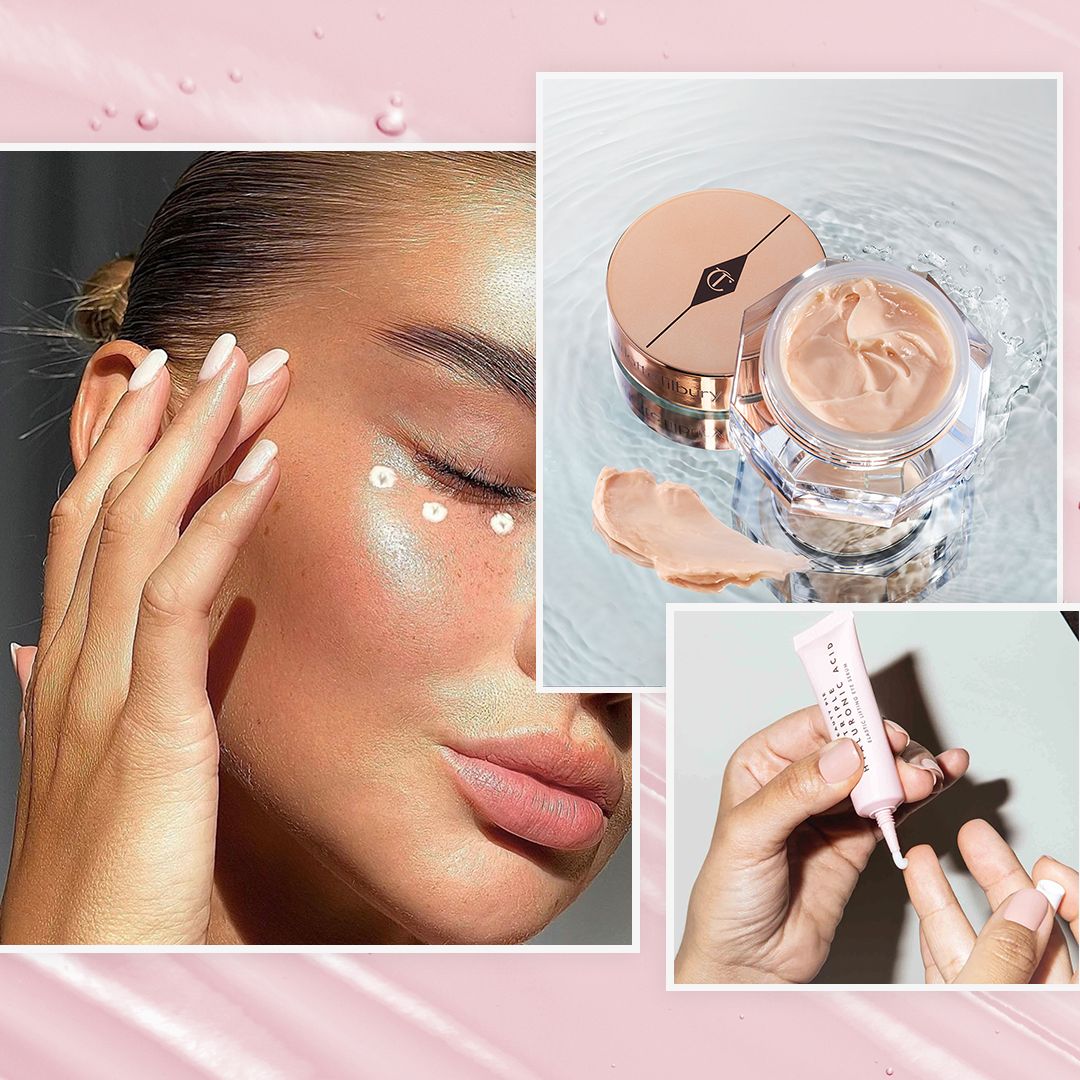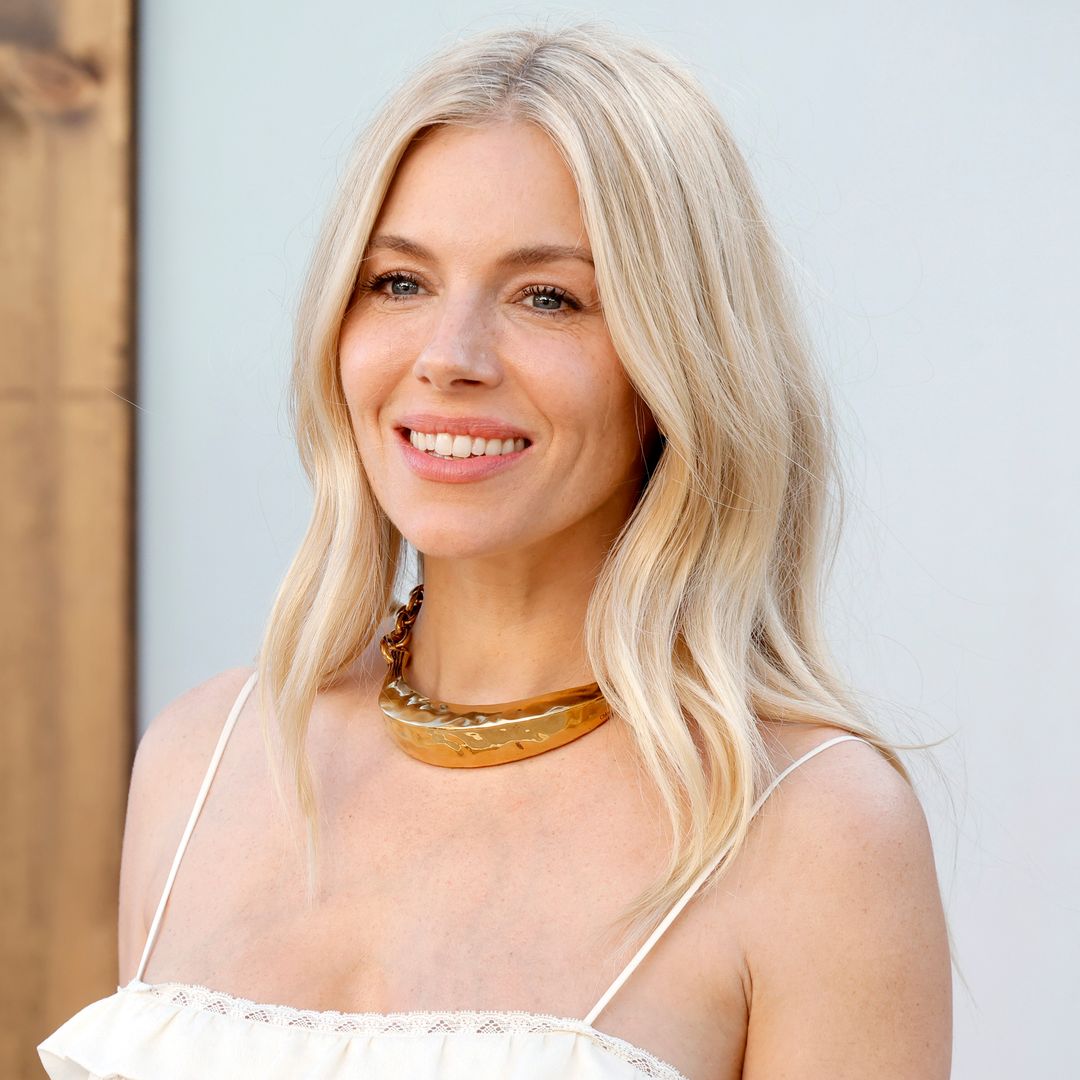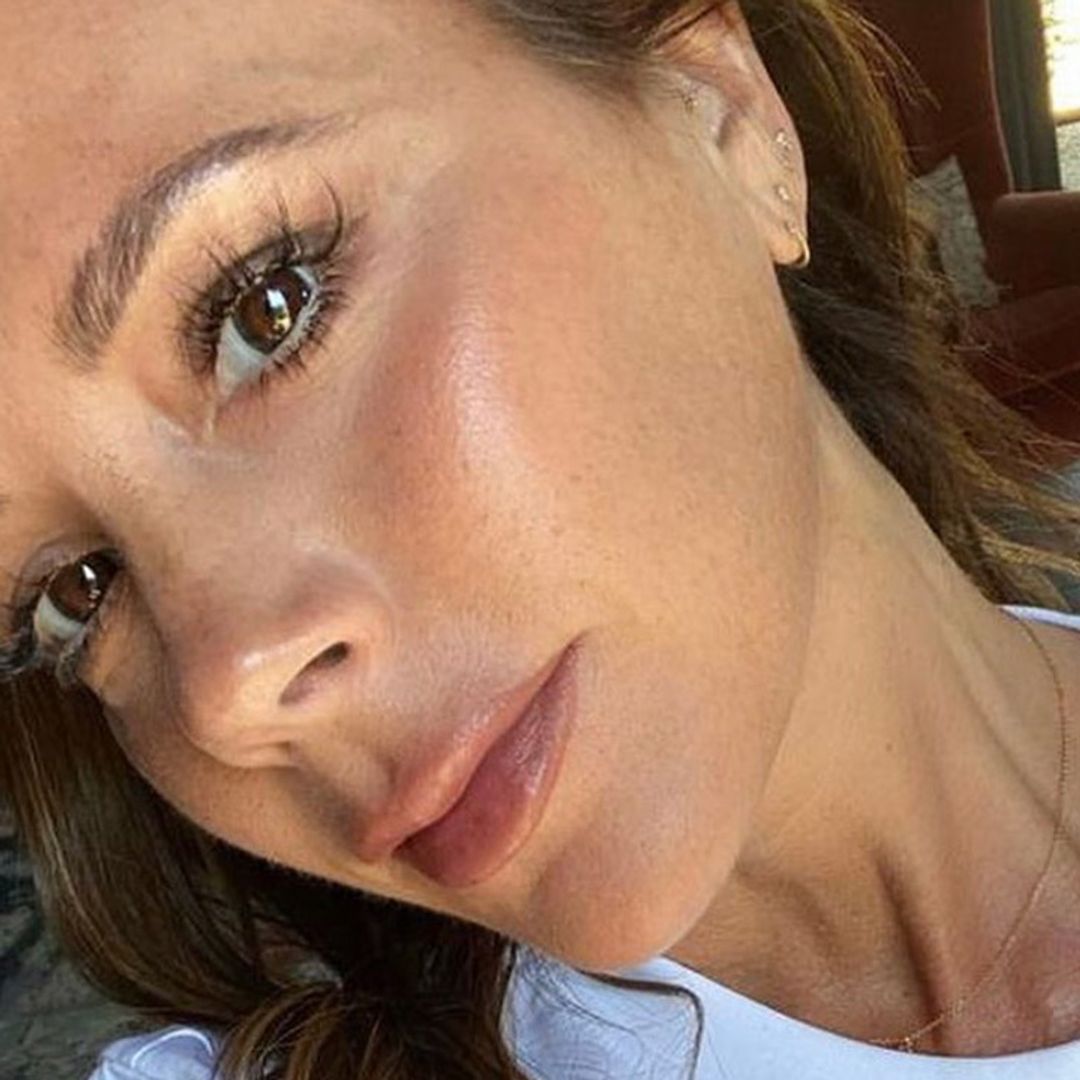Face sunscreen is unquestionably the most important step in our skincare routines. As well as providing instant results - preventing sunburn - it also reduces exposure to UVA and UVB rays, which cause long term damage and accelerate the signs of ageing - think fine lines, wrinkles and sagging skin.
Thankfully, a good sunscreen will prevent this when applied correctly, and these days formulas are so advanced that many come with a whole host of other skincare benefits, too.
If you're trying to decide on the best face sunscreen for you, there are several factors you'll want to take into account. These range from your skin type, how often you wear makeup and whether you'd prefer a chemical or mineral face sunscreen.
So, what's the difference? Mineral sunscreen forms a physical barrier to help reflect UVA and UVB rays, while chemical sunscreens absorb UV rays, changing their chemical structure to reduce sun damage. Mineral is more effective and lasts longer, but as it doesn't absorb into the skin it's harder to find a formula that feels comfortable and sits well under makeup.
To find the best face sunscreens on the market, I spoke to team HELLO! about their favourite tried and tested formulas. I also got in touch with Dr. Murad, Board-Certified Dermatologist and Founder of Murad Skincare, for his expert opinion.
Should I be using face sunscreen daily?
"Everyone should wear a broad-spectrum sunscreen regardless of age, gender or skin type," says Dr. Murad. "Just because you don’t burn doesn’t mean you’re not receiving UV damage from ageing UVA rays. Many people don’t know that UV rays are actually present (and the same strength) all year round. Your collagen starts to break down after just 10 minutes of being outside, even on a cloudy day. You should also protect your skin from the inside by giving it the nutritional building blocks of good cellular health. Eat raw fruits and vegetables - the more colourful the better – because they are full of skin-protective antioxidants and have a high-water content. This helps keep your skin’s barrier hydrated and more resistant to free-radical damage from the sun and daily pollution."
Does the face sunscreen I should use depend on my skin type?
"All skin types need protection, even those with a darker complexion. Darker skin tones might not be as susceptible to skin cancers, but they are susceptible to the other hazards of sun damage like hyperpigmentation and free radical damage. I always recommend at least wearing a moisturiser with SPF, regardless of your skin type. The nose is actually the most common location for skin cancer – it makes up one third of all cases – so make sure it’s well protected and keep topping up your sunscreen when you’re out in the sun."
How should I apply face sunscreen? How often should I apply it?
"For each sunscreen application to the face, apply a measure of a squeeze along the full length of the index and middle finger daily - and continuously reapply every two hours when out in the sun for long periods of time. If you plan on swimming or being in water, apply water resistant sunscreen (such as Murad's new Multi-Vitamin Clear Coat Broad Spectrum SPF 50) every 40 to 80 minutes for optimal protection. After swimming, perspiring or exercise reapply sun protection immediately."
How I chose the best face sunscreen
I spoke to the skincare obsessives on HELLO!'s shopping team for tried and tested reviews. I also searched the verified reviews online to find you the most-loved face sunscreens available to shop. I've included options suitable for a range of budgets and skin types, so there's something for everyone.
Best sunscreen for your face
La Roche-Posay Anthelios Ultra-Light FluidSPF: 50
Mineral or chemical? Chemical
Why we love it: Designed for sensitive skin. The price.
Developed with sensitive skin in mind, Anthelios contains the kind of minimalist ingredients you'd expect from French pharmacy brand La Roche-Posay. But it doesn't compromise on protection, going above Europe's recommended guidelines - this latest edition even helps to protect skin against damage caused by ultra-long UVA rays as well as UVA and UVB. Its lightweight formula is ideal for daily use.
Supergoop Unseen SunscreenSPF: 30
Mineral or chemical? Chemical
Why we love it: Formulated with Red Algae Extract and Meadowfoam Seed Oil (full of vitamins and fatty acids) to hydrate and moisturise. No white cast and invisible under makeup.
Carla Challis, HELLO!'s Commerce Partnerships Editor, says: "If I'm ever asked for a face SPF recommendation, I always suggest Supergoop. Not once has their SPF broken me out, or made my skin look greasy. I love the Glow Screen as it has a little tint to it, but I have the Unscreen Screen too for layering under makeup as an SPF primer. There's no white film, and actually makes my skin look better (it has an antioxidant rich formula)."
Kiehl's Ultra Light Daily UV DefenseSPF: 50
Mineral or chemical? Chemical
Why we love it: Suitable for acne-prone skin with its non-comedogenic formula. Infused with Baicalin for added antioxidant defence. Matte finish.
Lightweight and fast-absorbing, Kiehl's face sunscreen is perfect for everyday wear as it's invisible under makeup. Non-comedogenic and fragrance-free, it's suitable for even the most sensitive skin and won't cause you to break out.
Tatcha The Silk SunscreenSPF: 50
Mineral or chemical? Mineral
Why we love it: Formulated with Zinc Oxide and Niacinamide for clearer skin, plus hydrating hyaluronic acid.
Leanne Bayley, HELLO!'s Lifestyle & Commerce Director says: "I recently just got back from the Maldives, and Tatcha's The Silk Sunscreen SPF 50 was incredible. It's super lightweight and blends seamlessly - FYI, it features zinc oxide to give a light-as-air feel to it. It also contains niacinamide and hyaluronic acid, which made my skin feel smoother, while also helping to minimise pores, reduce my redness and improve skin texture. It felt like a real luxurious step in my skincare regimen, giving a radiant 'Paris' filter-like finish. Great under makeup and good for top-ups throughout the day as well."
Murad Multi-Vitamin Clear Coat CreamSPF: 50
Mineral or chemical? Chemical
Why we love it: Clear formula that's invisible under makeup. Contains a blend of Vitamins C, D, E & F to provide antioxidant benefits, reducing the appearance of dark spots and uneven skin tone.
Hollie Brotherton, HELLO!'s Lifestyle & Commerce Senior Writer says: "I love Murad's City Skin SPF, so I had high hopes for the new release this summer - and it's a dream for my combination skin. The lightweight formula is totally clear, which makes it perfect for wearing under makeup. It has a silky, gel-like, velvety formula that's hydrating but leaves my skin shine-free."
Ultra Violette Supreme Screen Sunscreen SPF: 50
Chemical or mineral? Chemical
Why we love it: A multipurpose moisturiser, primer and SPF in one. Super hydrating with a glowy finish.
Sophie Bates, HELLO!'s Commerce Writer says: "It took me so long to find the right SPF for my skin, and now that I've tried Ultra Violette's Supreme Screen I won't be going back. Similar products that I've used in the past have flaked off when I apply my makeup, but this almost acts acts as a hydrating primer that helps my foundation to glide on perfectly. There is a slight tint when you apply which saves you from the dreaded white cast, but once it's rubbed in there's no trace of it at all other than a glowy finish."
Malin + Goetz High Protection SunscreenSPF: 30
Mineral or chemical? Mineral
Why we love it: Suitable for sensitive skin. Pollution & environmental protection as well as sun protection. Non-greasy.
If you have sensitive skin and you're looking for a mineral sunscreen, Malin + Goetz is one of the most popular thanks to its lightweight, non-chalky formula that doesn't leave any residue. It's brightening and hydrating and protects against environmental aggressors as well as UVA and UVB rays.
Perricone MD Cold Plasma Plus+ Daily Defense Moisturiser High Protection SPF 35
SPF: 35
Chemical or mineral? Chemical
Why we love it: A powerhouse moisturiser that corrects, prevents and protects against sun damage.
For those who want to not only protect, but correct, their skin, Perricone MD has developed this weightless, multi-tasking powerhouse.
With Vitamin C Ester and copper tripeptide, the brand's liquid crystal delivery system is designed to visibly reduce fine lines, wrinkles, uneven texture and tone, dullness, redness and enlarged pores. The result? Healthy, radiant skin that's protected from UVA and UVB rays.
Dior Solar The Protective CremeSPF: 50
Mineral or chemical? Chemical
Why we love it: Fresh, light texture. Fast-absorbing formula. Glowy finish to enhance your tan.
Leanne Bayley, HELLO!'s Lifestyle & Commerce Director says: "Dior's Solar The Protective Creme is pure luxury when you're poolside. This is hydrating, and it enhances the skin with a satiny glow. But the best thing about this? The scent. It's dreamy. It's reminiscent of Tahitian monoi on the skin and it's strangely addicting and you'll want the whole collection of UV protection products."
Paula's Choice CALM Mineral Sunscreen
SPF: 30
Mineral or chemical? Mineral
Why we love it: Its gentle formula is specially designed with sensitive skin in mind.
Paula's Choice is known for being totally transparent with their ingredients, and this mineral sunscreen is super gentle to ensure it calms even the most sensitive skin while providing sun protection. The sheer gel cream formula soothes, hydrates and reduces redness.
Clarins Dry Touch Sun Care Cream for FaceSPF: 50
Mineral or chemical? Chemical
Why we love it: Formulated with high-level filters and plant-based extracts to for protection against UV rays and signs of photo-ageing. Eco-friendly recycled packaging.
Offering all of the benefits of a high SPF without streaking, stickiness or grease, this antioxidant formula suits all skin types and is enhanced with botanical extracts to help prevent visible signs of ageing and dehydration. It also has a dry to the touch, matte finish to ensure you stay chic in the heat.
SPF: 50+
Mineral or chemical? Chemical
Why we love it: Improves skin hydration with a sheer finish.
A skincare and SPF product in one, 111SKIN is known for their signature proprietary complex NAC Y²™ which helps to repair, restore and sooth your skin. Also formulated with Arabian cotton stem cell extract, this SPF offers broad spectrum photoprotection against UV, IR, Blue Light and visible light.
Can I wear face sunscreen with other skincare and makeup products? What order should I apply them?
Dr. Murad says: "Antioxidants boost the effectiveness of your sunscreen by combating free radical damage which can be caused by UV exposure, pollution, blue light or infrared radiation, and lead to dullness, fine lines, wrinkles and pigmentation. Look for Vitamin C to brighten your complexion and reduce pigmentation. Since there is a limit to how much Vitamin C the body will absorb from food, it is important to bypass the body and deliver this potent nutrient directly to the skin. Applied topically, Vitamin C benefits the skin by preventing water loss and keeping the skin moisturised and supple. It promotes elastin and collagen, which are the main building blocks of the dermis and give the skin strength and resiliency. It also neutralises damaging free radicals, which can cause premature ageing, and increases the effectiveness of a topical SPF, protecting the skin from the sun’s harmful rays."
Does face sunscreen expire?
"Yes, it does. As a guide, don’t keep sunscreens from the year before as once opened they have a limited life span - so we generally recommend to replace sunscreens annually, particularly if they have been in your holiday beach bag and exposed to sunlight and heat. Ideally keep your sun cream in the shade and a cool place."
